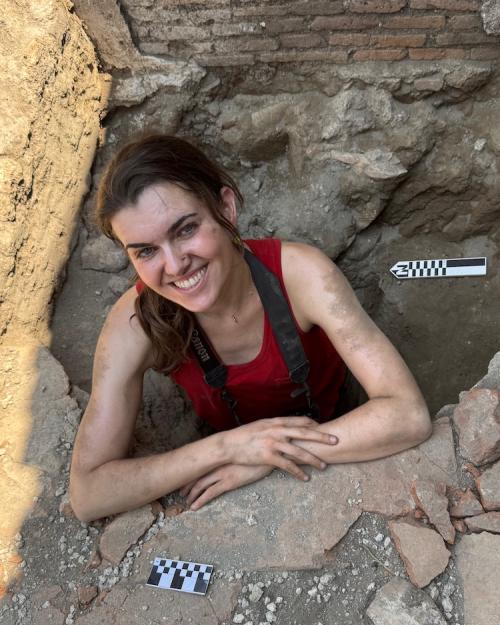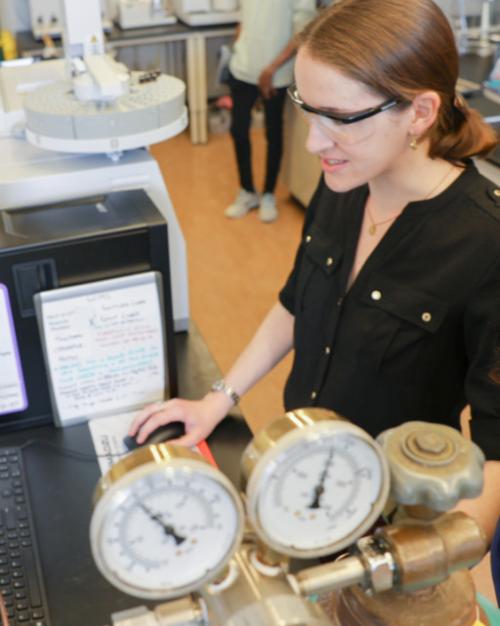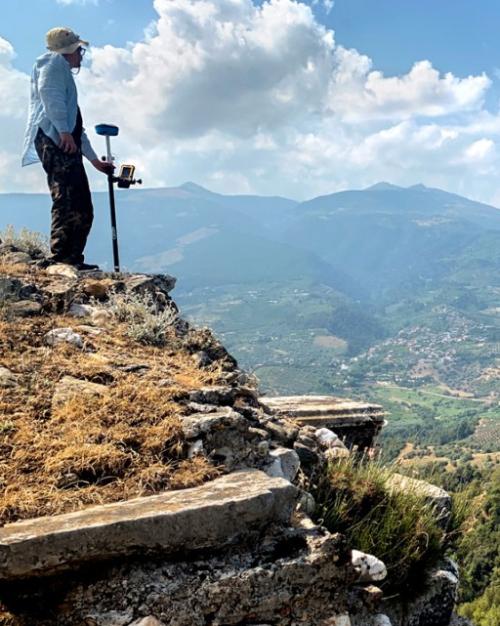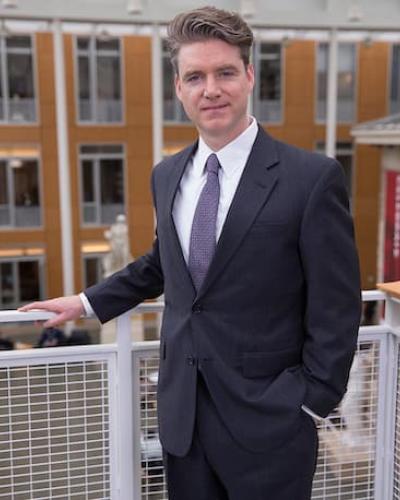Dan Gallagher, Ralph and Jeanne Kanders Senior Lecturer in Latin at Cornell, will be giving a short talk on NPR’s WAMC Northeast Public Radio on Wednesday, December 9 for the Academic Minute segment. It will air here at 7:30 AM and 3:56 PM EST. He will speak about his Living Latin classrooms and the benefits of spoken Latin.
Gallagher offers a number of spoken Latin opportunities for Cornell students. He regularly teaches Conversational Latin I (LATIN 2207) and Conversational Latin II (LATIN 2210); LATIN 2207 was offered this semester and will continue with LATIN 2210 in Spring 2021. Jack Liufu (Chemistry ‘21), who began taking Latin during his first semester at Cornell, was later drawn to spoken Latin because of the apparent contradiction: “How are you going to speak a ‘dead’ language?” Jack says, “Coupled with the languages I already know, English and Mandarin, and the language I'm learning concurrently, ASL, my semester has been a flurry of language, and it has been amazing to notice how my mind is not only actively but also automatically switching between languages for thinking and speaking.” Christopher Chandra (Classics, English, and Information Science ‘22) says, “I like that the spoken Latin has really made Latin into another language I can rely on. I like that it has changed Latin for me from something that I translate to something that I read and speak.”
An important component of the courses are student oral presentations on a topic of their choosing. Topics have ranged from fencing and basketball to the stock market and cookie baking, from Paul Cézanne and Morton Feldman to the passive aorist and the Heisenberg Uncertainty Principle, and from Shawn Mendes and Adele to the velocity of projectiles, all in “grammatically sound, comprehensible Latin,” says Gallagher. As wide-ranging and interesting as these topics are, Gallagher emphasizes that they are not an end in themselves; students who have struggled with certain constructions not only learned how, but now know when it is appropriate to use them because they are actively incorporating structures that they had originally learned only passively into their speech. Jack says, “To be able to start at the beginning of the semester barely latching on to a couple of spoken words by Professor Gallagher to speaking ourselves and being able to understand others; that has been an experience that has been absolutely wonderful.”
This semester Gallagher has been hosting Ientacula Latina, or “Latin Breakfasts,” which are Sunday morning Zoom gatherings for informal conversations in Latin. Jack says that when he joined a meeting this semester, he was shocked at the turnout: “Not only people from the Ithaca community but also students from all around the world joined in; even people who didn’t know Latin but wanted to get some listening and exposure hopped on, and I didn’t think I would see such a showing for spoken Latin but clearly there’s a desire for it out there.”
Gallagher, with the help of Classics graduate students, also organized the Biduum Latinum, a weekend conference hosted by Cornell University for spoken Latin activities. Originally scheduled for May 2020, it has been postponed to 2022.
In past semesters, Gallagher has also directed dramatic performances in Latin. He oversaw the production of Seneca’s The Trojan Women in Spring 2019. The performance, held in Rhodes-Rawlings Auditorium on April 21 and April 24, 2019, was a part of the Conversational Latin courses and Gallagher’s overarching goal to “further students’ mastery of Latin by having them perform in Latin, in addition to conversing about the play they were preparing to perform.” As a result of the project, students were able to comprehend the dramatic text and summarize it orally in Latin, compose and express their own thoughts and insights about the drama based on models drawn from ancient authors, understand the structure and functions of Latin through these acquired aural and oral skills, and teach their new skills to others. As Gallagher says, “Staging the play presented an entirely unique opportunity for the Latin program at Cornell to study its effects on student learning, and an equally unique opportunity for the audience to experience Roman drama in the original language.” Christopher, who played Ulysses, fondly remembers “working so hard scanning and trying to remember my lines in the middle of Nasties (Bear Necessities) of all places,” and he looks forward to participating in another play before he graduates. Plans are underway for a production of Seneca’s Medea in 2022 or 2023.
Gallagher’s main goal in his classrooms and spoken Latin activities is to bring students to a complete mastery of the Latin language. Ultimately he aims to cultivate students’ ability to “formulate one’s own thoughts in Latin and to express them in real human-to-human interaction in a way that allows for an active engagement with the unique structural, grammatical, and syntactical features of Latin.” Jack confirms just how well Gallagher is meeting his goal as he expresses excitement at his ability to view and use language in new ways: “Something super fascinating in my experience with spoken Latin is how, if I want to have ‘nice’ constructions, I’ll need to know my final word, my verb, before I even start the sentence. In that way, I feel like I’m developing this really cool and interesting holistic view of how to use language.” Christopher has enjoyed finding ways to incorporate his Latin into other parts of his life, outside of the Living Latin classroom: “I think that spoken Latin is very niche, but I know that it has given me the comfort to use Latin in my other disciplines. A lot of my final projects in my other classes have involved Latin-related topics, such as a history of Latin grammar education and looking at the relationship between parts of speech in Latin poetry.” Looking towards next semester and beyond, Jack looks forward to “continuing in my spoken Latin journey. I'm really excited to see what else I learn along the way.”
Students interested in spoken Latin can contact Dan Gallagher at dbg223@cornell.edu.





